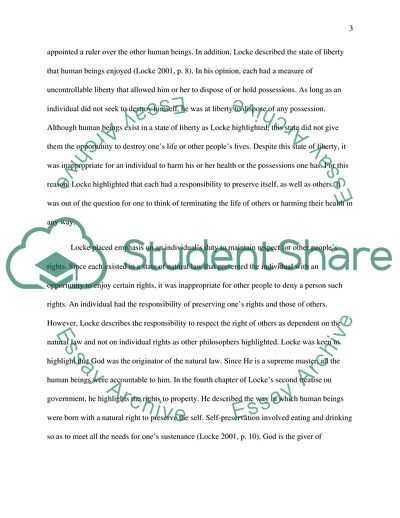Cite this document
(The Natural Rights Theory Coursework Example | Topics and Well Written Essays - 2000 words, n.d.)
The Natural Rights Theory Coursework Example | Topics and Well Written Essays - 2000 words. https://studentshare.org/philosophy/1861175-1what-is-natural-rights-theory-and-what-problems-does-it-face-recall-that-bentham-rejects-the-concept-of-natural-rights-entirely-on-what-grounds-do-you-agree-with-benthams-view
The Natural Rights Theory Coursework Example | Topics and Well Written Essays - 2000 words. https://studentshare.org/philosophy/1861175-1what-is-natural-rights-theory-and-what-problems-does-it-face-recall-that-bentham-rejects-the-concept-of-natural-rights-entirely-on-what-grounds-do-you-agree-with-benthams-view
(The Natural Rights Theory Coursework Example | Topics and Well Written Essays - 2000 Words)
The Natural Rights Theory Coursework Example | Topics and Well Written Essays - 2000 Words. https://studentshare.org/philosophy/1861175-1what-is-natural-rights-theory-and-what-problems-does-it-face-recall-that-bentham-rejects-the-concept-of-natural-rights-entirely-on-what-grounds-do-you-agree-with-benthams-view.
The Natural Rights Theory Coursework Example | Topics and Well Written Essays - 2000 Words. https://studentshare.org/philosophy/1861175-1what-is-natural-rights-theory-and-what-problems-does-it-face-recall-that-bentham-rejects-the-concept-of-natural-rights-entirely-on-what-grounds-do-you-agree-with-benthams-view.
“The Natural Rights Theory Coursework Example | Topics and Well Written Essays - 2000 Words”. https://studentshare.org/philosophy/1861175-1what-is-natural-rights-theory-and-what-problems-does-it-face-recall-that-bentham-rejects-the-concept-of-natural-rights-entirely-on-what-grounds-do-you-agree-with-benthams-view.


